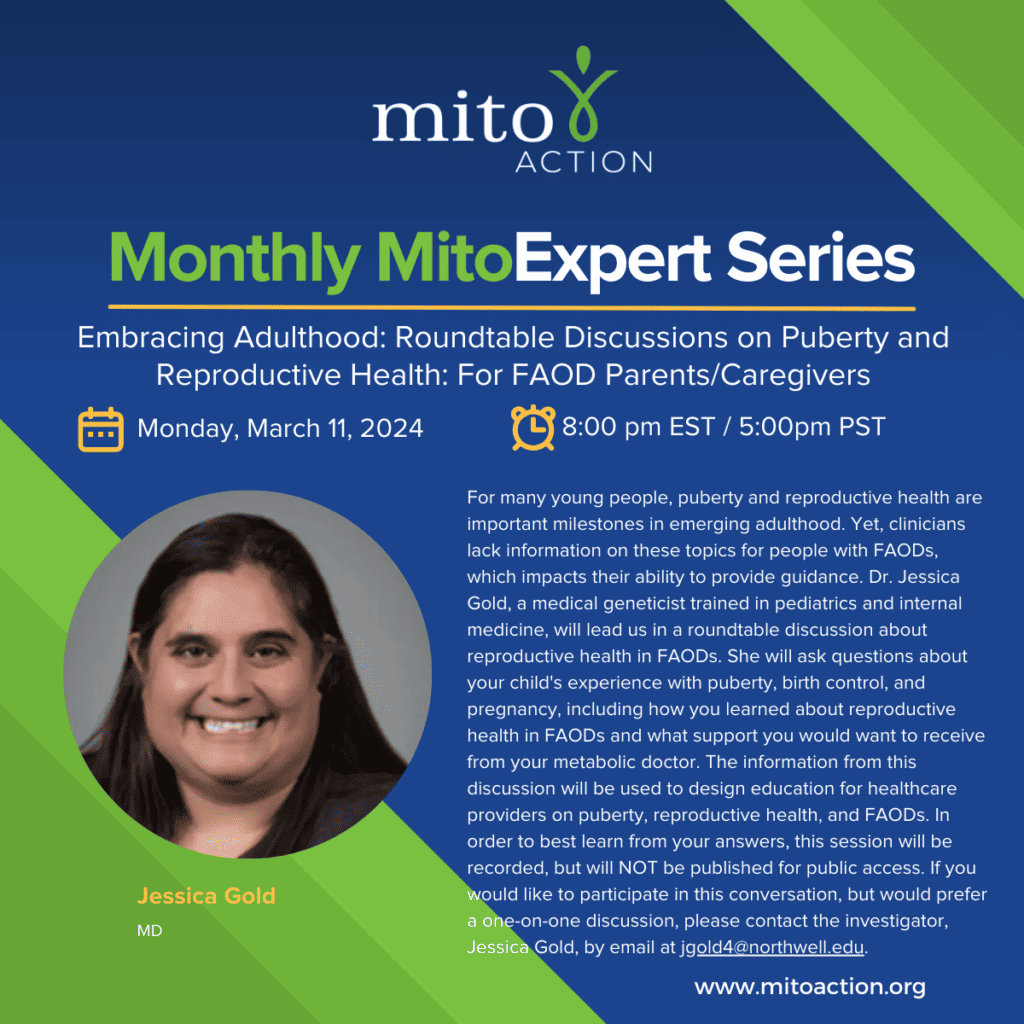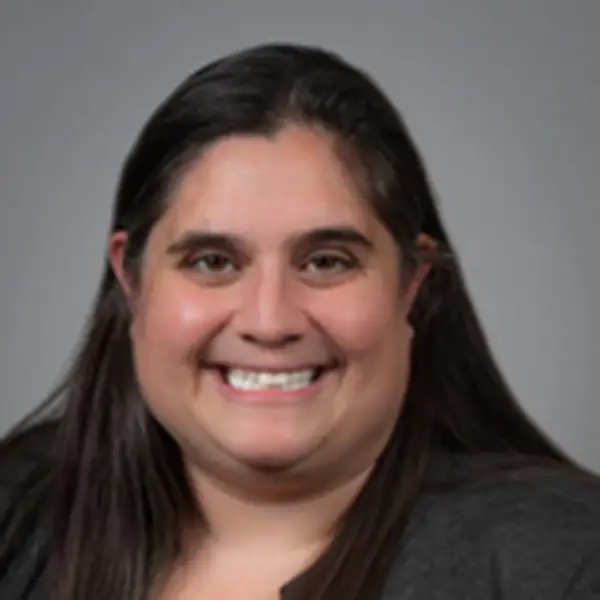
- This event has passed.
Expert Series: Embracing Adulthood: Roundtable Discussions on Puberty and Reproductive Health: For FAOD Parents/Caregivers
March 11, 2024 @ 8:00 pm - 9:00 pm EDT

For many young people, puberty and reproductive health are important milestones in emerging adulthood. Yet, clinicians lack information on these topics for people with FAODs, which impacts their ability to provide guidance. Dr. Jessica Gold, a medical geneticist trained in pediatrics and internal medicine, will lead us in a roundtable discussion about reproductive health in FAODs. She will ask questions about your child's experience with puberty, birth control, and pregnancy, including how you learned about reproductive health in FAODs and what support you would want to receive from your metabolic doctor. The information from this discussion will be used to design education for healthcare providers on puberty, reproductive health, and FAODs. In order to best learn from your answers, this session will be recorded, but will NOT be published for public access. If you would like to participate in this conversation, but would prefer a one-on-one discussion, please contact the investigator, Jessica Gold, by email at jgold4@northwell.edu.
About the Speaker

Jessica Gold, MD, PhD
Dr. Jessica Gold is a medical geneticist trained in pediatrics and internal medicine. Both her clinical work and research is dedicated to helping adolescents and young adults with inherited metabolic disorders prepare for adulthood. For many young people, puberty and reproductive health are important milestones in emerging adulthood. Yet, clinicians lack information on these topics for people with FAODs, which impacts their ability to provide guidance. This project is the first step in learning how people with FAODs approach puberty and reproductive health. The roundtable discussions will be an opportunity for people with FAODs or their parents/caregivers to share their experiences with puberty and reproductive health so we can improve healthcare for adolescents and adults with FAODs.











